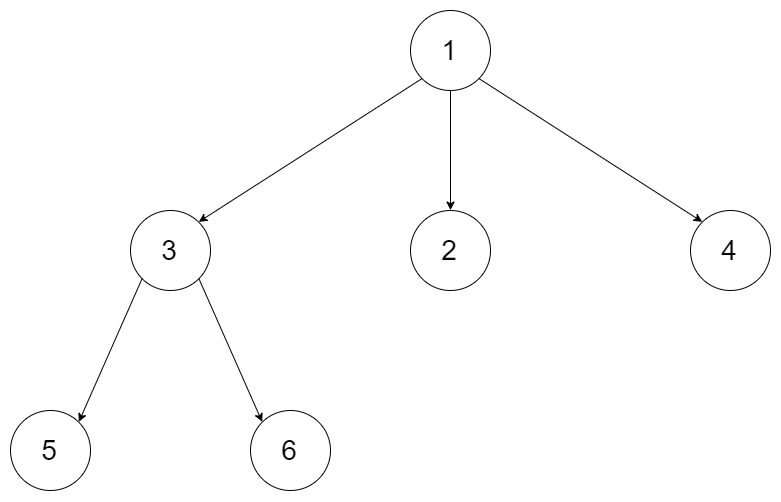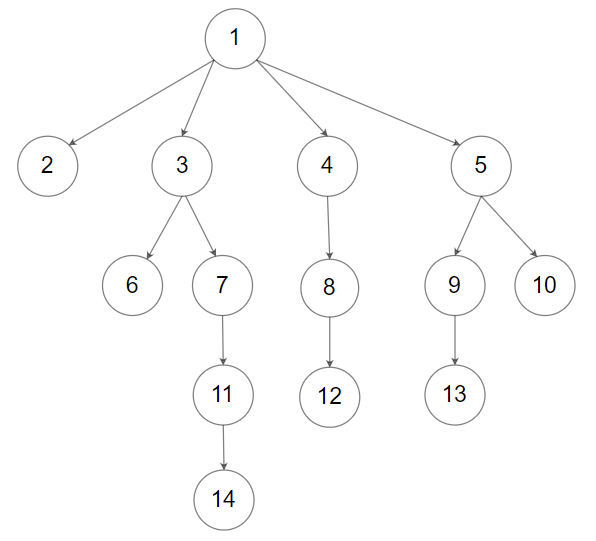题目¶
原题地址:https://leetcode.com/problems/n-ary-tree-postorder-traversal/
Given an n-ary tree, return the postorder traversal of its nodes' values.
Nary-Tree input serialization is represented in their level order traversal, each group of children is separated by the null value (See examples).
Follow up:
Recursive solution is trivial, could you do it iteratively?
Example 1:

Input: root = [1,null,3,2,4,null,5,6] Output: [5,6,3,2,4,1]
Example 2:

Input: root = [1,null,2,3,4,5,null,null,6,7,null,8,null,9,10,null,null,11,null,12,null,13,null,null,14] Output: [2,6,14,11,7,3,12,8,4,13,9,10,5,1]
Constraints:
- The height of the n-ary tree is less than or equal to 1000
- The total number of nodes is between [0, 10^4]
解法¶
这个题目虽然说的是 N 叉树的后序遍历,但是实现方法跟二叉树的后序遍历几乎是一样的, 可以参考前面 LeetCode: 145. Binary Tree Postorder Traversal 的方法进行实现。
递归法实现¶
这个方法的 Python 代码类似下面这样:
"""
# Definition for a Node.
class Node(object):
def __init__(self, val=None, children=None):
self.val = val
self.children = children
"""
class Solution(object):
def postorder(self, root):
nodes = []
self._postorder(root, nodes)
return nodes
def _postorder(self, root, nodes):
if root is None:
return
for c in root.children:
self._postorder(c, nodes)
nodes.append(root.val)
stack 法实现¶
这个方法的 Python 代码类似下面这样:
"""
# Definition for a Node.
class Node:
def __init__(self, val=None, children=None):
self.val = val
self.children = children
"""
class Solution:
def postorder(self, root):
if root is None:
return []
nodes = []
stack1 = []
stack2 = []
stack1.append(root)
while stack1:
curr = stack1.pop()
stack2.append(curr)
for c in curr.children:
stack1.append(c)
while stack2:
node = stack2.pop()
nodes.append(node.val)
return nodes
Comments